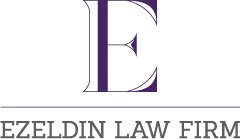Best Foreclosure Lawyers in Illinois
Share your needs with us, get contacted by law firms.
Free. Takes 2 min.
Free Guide to Hiring a Real Estate Lawyer
Or refine your search by selecting a city:
List of the best lawyers in Illinois, United States
About Foreclosure Law in Illinois, United States
Foreclosure is the legal process by which a lender can take possession of a property when a homeowner fails to make mortgage payments. In Illinois, this process is primarily judicial, meaning it goes through the court system. This protects homeowners by ensuring due process but also means the proceedings can be complex and time-consuming. Illinois law establishes specific requirements and timelines for lenders and provides certain protections for borrowers. Understanding your rights and responsibilities during foreclosure is critical, as mishandling a foreclosure can lead to loss of your home and significant financial consequences.
Why You May Need a Lawyer
Facing foreclosure is stressful, and the legal process can be confusing for anyone unfamiliar with Illinois law. Consulting a lawyer is especially important in several common situations:
- You have received a foreclosure notice and are unsure what your rights are.
- You want to challenge the foreclosure because you believe there has been an error or wrongdoing by the lender.
- You are interested in exploring alternatives to foreclosure, such as loan modification, a short sale, or a deed in lieu of foreclosure.
- You want to understand how foreclosure may affect your credit, future home buying ability, or potential tax consequences.
- You face possible eviction after a foreclosure sale.
- You are considering bankruptcy as a way to stop or delay foreclosure.
- You have questions about deficiency judgments and whether you could still owe money after foreclosure.
- You want help negotiating with your lender or responding to court documents.
Local Laws Overview
The foreclosure process in Illinois is governed by state statutes and must be carried out through the courts. Here are some of the key aspects:
- Judicial Foreclosure: Illinois requires lenders to file a lawsuit in court to begin foreclosure. The homeowner must be properly notified and is given time to respond.
- Redemption Period: Homeowners typically have a redemption period, which is the time after judgment but before the home is sold, to pay off the balance and keep their home. In most cases, this period lasts seven months from service of the summons or three months from the date of judgment, whichever is later.
- Right to Reinstate: Borrowers have a right to reinstate the mortgage by paying the amount due and stopping the foreclosure, usually up to 90 days after being served with the complaint.
- Foreclosure Sale: If the borrower does not redeem or reinstate, the property will be sold at public auction, typically by the county sheriff.
- Eviction: If the property is sold, the new owner can seek eviction of any occupants through the courts.
- Deficiency Judgments: In Illinois, lenders can pursue the homeowner for the difference between the sale price and the remaining mortgage balance, though this is at the court’s discretion.
- Notice Requirements: Lenders must comply with specific notice and publication requirements before proceeding with foreclosure.
Frequently Asked Questions
What is the first step in the Illinois foreclosure process?
The lender files a lawsuit in court and serves you with a summons and complaint. You then have a set period, usually 30 days, to respond.
How long does foreclosure take in Illinois?
The process can take anywhere from eight months to over a year, depending on the court’s schedule, your response, and whether you seek to fight the foreclosure or negotiate with the lender.
Can I stop foreclosure once it starts?
Yes, you may stop foreclosure by reinstating the loan, redeeming the property, negotiating a loan modification, or successfully defending against the lender’s claims in court.
Will I have to leave my home immediately after foreclosure?
No, you will not have to leave immediately. After the sale, you will receive notice before any eviction. The new owner must follow the legal eviction process.
What options do I have to avoid foreclosure in Illinois?
You may negotiate a loan modification, refinance, pursue a short sale, file for bankruptcy, or offer a deed in lieu of foreclosure. Timing and your unique circumstances will affect your available options.
What is the right of redemption?
The right of redemption allows you to pay the full judgment amount before the sale to keep your property. This period is usually seven months from being served or three months from judgment, whichever is later.
What happens if my home's sale price is less than what I owe?
The lender may seek a deficiency judgment for the difference. However, the court must approve it, and not all foreclosures result in deficiency judgments.
Will foreclosure affect my credit?
Yes, foreclosure will significantly impact your credit score, often remaining on your credit report for up to seven years.
What if I am serving in the military?
Special protections are in place under the federal Servicemembers Civil Relief Act. Illinois law may provide additional protections for military personnel facing foreclosure.
Should I file for bankruptcy to stop foreclosure?
Bankruptcy can temporarily stop a foreclosure and may allow you to reorganize your debts. However, it may not provide a long-term solution for keeping your home. Consult with an attorney before deciding.
Additional Resources
Several organizations and agencies provide information and assistance regarding foreclosure in Illinois:
- Illinois Attorney General’s Office: Offers information on homeowner rights and foreclosure prevention.
- Illinois Housing Development Authority (IHDA): Provides housing resources and support for homeowners facing foreclosure.
- Legal Aid Chicago: Offers free or low-cost legal assistance to eligible individuals dealing with foreclosure.
- U.S. Department of Housing and Urban Development (HUD): Has approved housing counseling agencies in Illinois.
- County Circuit Courts: Local courts often have resources or information about the foreclosure process in your county.
Next Steps
If you are facing foreclosure or have received legal documents related to foreclosure, do not ignore them. Here are practical steps to help you navigate the process:
- Gather all relevant loan documents, notices, and court papers.
- Contact your lender as soon as possible to discuss your options and make them aware of your situation.
- Seek advice from a qualified foreclosure attorney or a legal aid service. An attorney can explain your rights, represent you in court, and help you pursue alternatives to foreclosure.
- Respond promptly to any court documents or legal notices.
- Explore government and nonprofit resources for housing counseling and foreclosure prevention.
- Consider your long-term goals and the impact of foreclosure on your financial situation.
Dealing with foreclosure is challenging, but timely action and informed legal advice can help protect your rights and give you the best chance at a positive outcome.
Lawzana helps you find the best lawyers and law firms in Illinois through a curated and pre-screened list of qualified legal professionals. Our platform offers rankings and detailed profiles of attorneys and law firms, allowing you to compare based on practice areas, including Foreclosure, experience, and client feedback.
Each profile includes a description of the firm's areas of practice, client reviews, team members and partners, year of establishment, spoken languages, office locations, contact information, social media presence, and any published articles or resources. Most firms on our platform speak English and are experienced in both local and international legal matters.
Get a quote from top-rated law firms in Illinois, United States — quickly, securely, and without unnecessary hassle.
Disclaimer:
The information provided on this page is for general informational purposes only and does not constitute legal advice. While we strive to ensure the accuracy and relevance of the content, legal information may change over time, and interpretations of the law can vary. You should always consult with a qualified legal professional for advice specific to your situation.
We disclaim all liability for actions taken or not taken based on the content of this page. If you believe any information is incorrect or outdated, please contact us, and we will review and update it where appropriate.
Browse foreclosure law firms by city in Illinois
Refine your search by selecting a city.

















